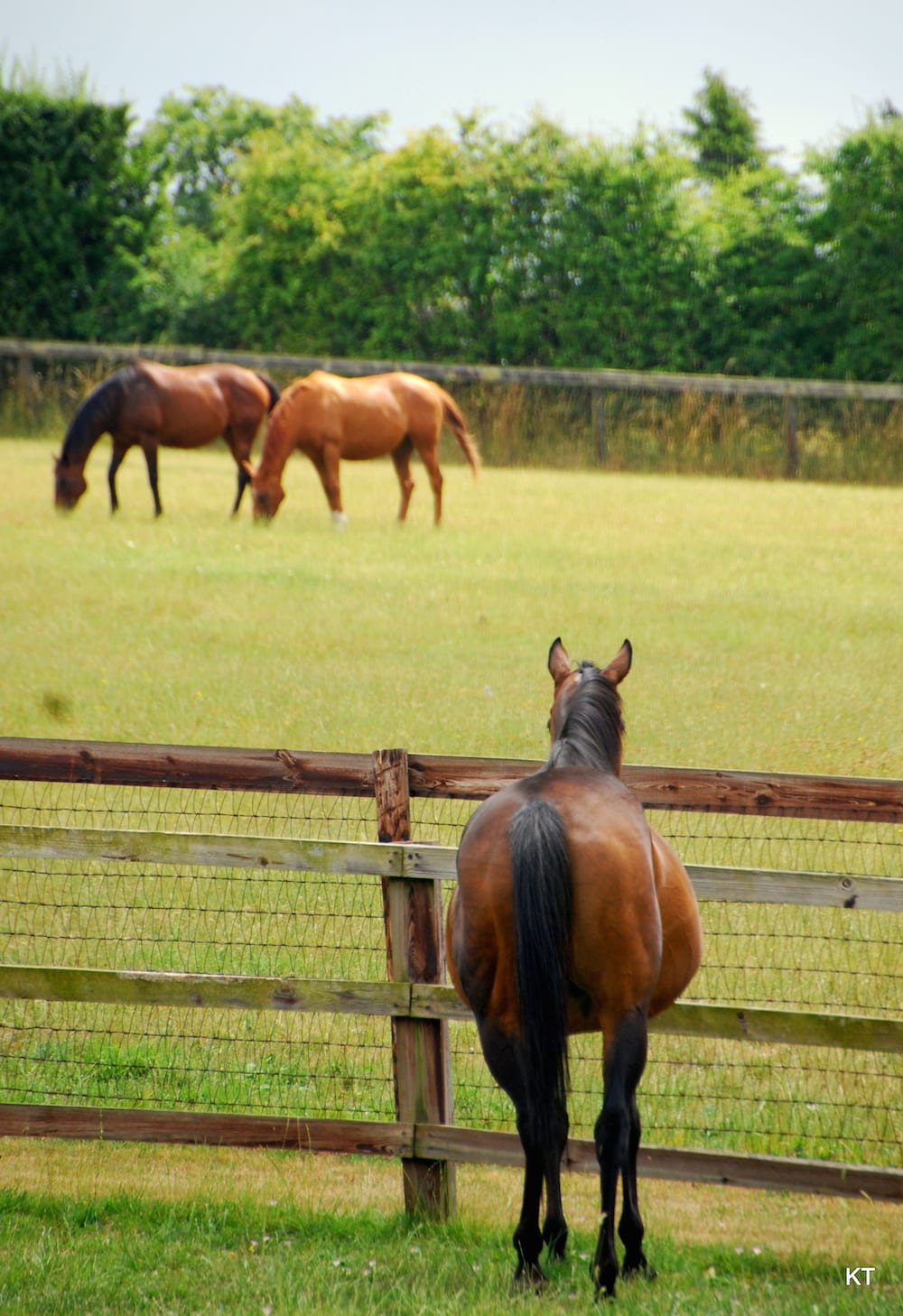
At this time of the year, many animals (and even some humans!) go into hibernation mode until warmer weather reappears. If you have plans to breed your mare in the spring, you might also be tempted to try fattening her up during the coming winter months by giving her more grain.
The phrase “eating for two” does have some basis in fact. Pregnant mares or those you intend to breed soon should rank higher on the Henneke Body Condition Scale, and they do need more calories, protein, calcium and phosphorous.
However, it is a myth that you need to increase a mare’s grain if you intend to breed her in the spring. Instead, you should prioritize high-quality, constant forage, which can provide the majority of the vitamins and nutrients she needs.
Why You Shouldn’t Use Grain to Help Your Horse Gain Weight
Feeding your mare an extra scoop of grain this winter might seem like a great idea: grain is calorie-dense and special formulas can help your mare get the additional amounts of vitamins and minerals required by pregnant or lactating mares. Plus it tends to be cheaper. Yet relying on grain has its drawbacks. Among them:
- Digestive imbalance. Horses are designed to digest food slowly and steadily, which is why hours of leisurely nibbling forage is beneficial. Their digestive system isn’t able to process large dumps of grain, and that means that many of the beneficial ingredients that you think grain is providing are actually passing into the hindgut and creating digestive issues and, potentially, discomfort.
- Poor nutrient absorption. Too much grain in a short period of time often moves through the horse’s system quickly. This doesn’t allow time for proper digestion, and when nutrients aren’t fully absorbed from feed, the mare doesn’t get their benefits. In turn, the negative impact of grain feed on a horse’s gi tract health make it that much harder for nutrients to be absorbed fully. This affects your mare’s energy, stamina, recovery after exercise, and can make it hard for her to gain weight. None of these effects are ideal for a mare that you’d like to breed.
- Weight loss. Helping your horse achieve a healthy weight is dependent on her digestive health. If your mare isn’t getting the nutrients she needs, she won’t be able to put on weight. A healthy digestive tract starts by feeding your horse a diet that’s appropriate and designed for optimal digestion. That means feeding plenty of forage.
Prioritize Forage for Healthier Weight Gain
If your mare is lucky enough to live in a climate where grass maintains some nutrient content year-round, she may not need much supplementation. If you live in a colder climate, it’s imperative to prioritize high-quality hay fed at regular intervals (or constantly).
If your mare is stalled frequently:
- Hang a hay net in her stall, double-netting it to slow her eating down as necessary.
- Add chopped, soaked chaff to her feed.
- Provide soaked, chopped beet pulp along with her feed.
The important thing is to do as much as you can to provide as much beneficial forage as possible.
While it is a myth that you should try to fatten a mare up with grain before you breed her, there is some truth to needing to “eat for two.” Just be sure she’s eating mostly roughage and spending as much time grazing as possible for a healthier, happier (and hopefully pregnant) mare come springtime.
Photo by Baralinka & To The Sea licensed under CC2.0



